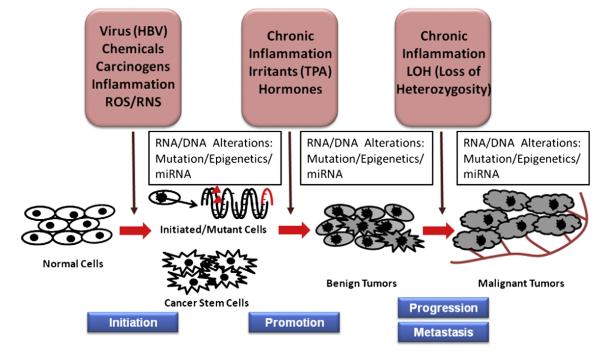Fig. 1.
Schematic representation of multi-stage carcinogenesis. Exposure to intrinsic/extrinsic factors, including various toxic chemicals, oncogenes, viruses (e.g., HBV, hepatitis B virus), ROS/RNS, and inflammation, can resulting in genetic mutations and/or epigenetic alterations that cause the initiation of carcinogenesis in normal cells. The initiated cells and non-neoplastic cancer stem/progenitor cells can first progress to benign tumors, which would be amendable with surgery, radiation and or chemotherapy, if detected early, with subsequent progression to advanced/metastasized/malignant/drug-resistant tumors due to the prolonged effects of chronic inflammation, various irritants and aberrant hormones.

